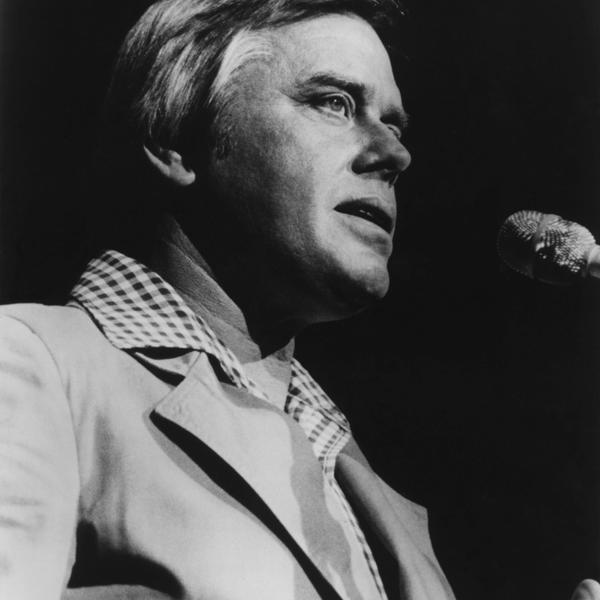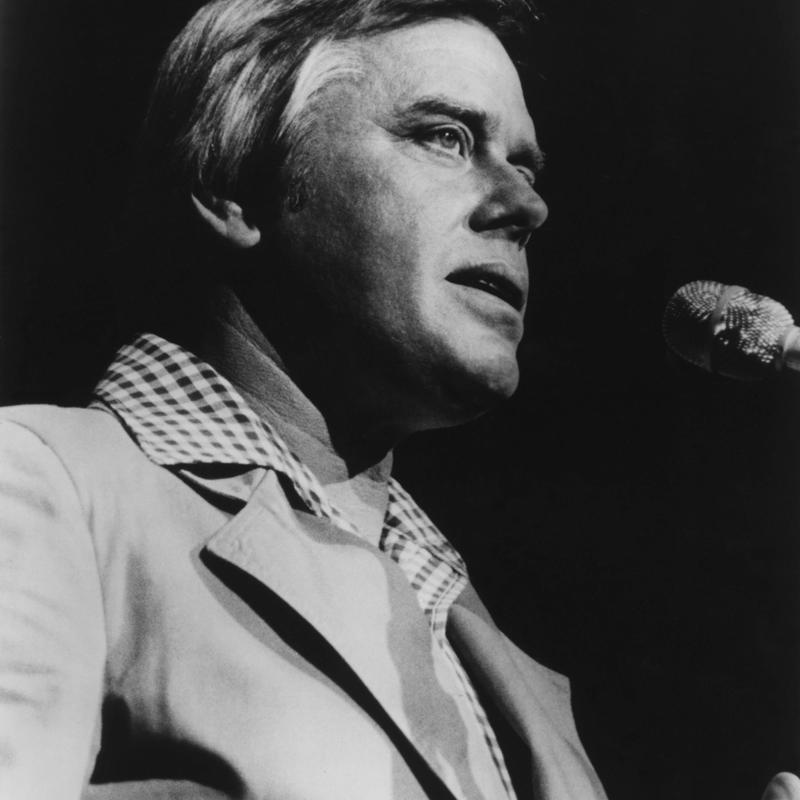




Link copied

“Songwriters aren’t good songwriters”, Tom T. Hall once said. “People are good songwriters. You sit down as a person and write a song. If you’ve written a song by the time you stand back up, you’re a songwriter. But the person comes first”.
‘The Storyteller’, Tom T. Hall, passed away on August 20, 2021. He leaves behind hundreds of songs recorded by other artists and 35 studio albums, nine compilation albums and 50 singles of his own: all of them unmistakably his songs.
Here, we look back at his life through the songs that made him one of the greatest country songwriters of all time:

Tom T. Hall
Faster Horses
This brassy bluegrass stomper tells the story of a young poet who meets a cowboy in a local bar. Thinking the cowboy might have some big universal truth to share, the poet asks him about “the mysteries of life”.
The cowboy spits between his boots and reveals that his great philosophy of life is simply "Faster horses, younger women, older whiskey and more money”.
Me And Jesus
Written during a particularly fertile patch between 1972 and 1973, ‘Me And Jesus’ was inspired by a favourite expression of Hall's mother, “Me and Jesus will work it out”.
After listening to a particularly avaricious preacher on the radio one day while travelling around Georgia, Hall wrote the song, setting forth his view of life, organised religion and a more personal idea of faith.
Old Dogs, Children And Watermelon Wine
One of Hall’s most well-loved songs, the story goes that an old man sat down with him in bar and proceeded to tell him his well-learned secret to a happy and contented life: “Ain’t but three things in this world that’s worth a solitary dime, but old dogs, children and watermelon wine’.
Hall wrote out the lyrics to the song on a sick bag on a flight to Atlanta the next day, recording it as soon as he arrived back in Nashville.
Harper Valley P.T.A
Hall had the biggest hit of his career in 1968 with Jeannie C. Riley’s sassy pop crossover smash. After driving past a school called Harpeth Valley Elementary School in Bellevue, Hall wrote this fictional confrontation between a character called Mrs. Johnson, a miniskirt-wearing widowed single mother and the PTA group of her daughter’s school.
I Love
One of Hall’s simplest songs, ‘I Love’ went on to be the most successful solo single of his career. The song is a softly sung, heart-warming list of everything that Hall loves about life, from baby ducks to pick-up trucks, squirrels to puppies, written in five minutes and recorded in two takes.
“I invested a total of nine minutes into it, and it sold more than a million copies and was used in a Coors Light commercial”, he said.
Mama Bake A Pie (Daddy Kill A Chicken)
Tucked away on his 100 Children album was this sarcastic anti-war song, sung by an implausibly breezy paralysed war veteran who is boarding a plane on a wheelchair, to return home from the war.
He smiles at the air stewards and tells jokes to cover his embarrassment. Isbell performed the song when Hall was inducted into the Songwriters Hall of Fame in 2019.
Little Bitty
Hall wasn’t really in the hit-making business in 1996; he’d retired from writing the sort of songs that you had hits with ten years earlier. Out of nowhere, he returned with Songs From Sopchoppy, a new album of overly produced originals named after his part-time Florida home.
Tucked away towards the end of the album was ‘Little Bitty’, a song he’d written on holiday while out walking in Australia. Alan Jackson heard it and cut it for his Everything I Love album, taking the song all the way to number one.
The Year That Clayton Delaney Died
Clayton Delaney – real name Lonnie Easterling – was the man who taught Hall to play guitar when he was younger, inspiring him to be a musician and songwriter.
Hall would always change the names of his characters when he took them from real life, protecting the people and sometimes to protect him from them. It was around this time that people in country music began to call these sorts of songs ‘Tom T. Hall songs”.
Homecoming
‘Homecoming’ bears all the hallmarks of a Tom T. Hall song. Sung from the one-sided perspective of a struggling singer who takes a trip back to see his father, it’s one of Hall’s most exquisitely written conversation songs.
Perfectly capturing that feeling of wistfulness, the returning son gently nudges for his father’s approval, awkwardly apologising for missing his mother’s funeral, and telling him about the shows he’s been playing and the girl sleeping out in his car.
That's How I Got To Memphis
Sung from the perspective of someone who goes to Memphis on the off-chance that his lover has gone back there, ‘That’s How I Got To Memphis’ possesses Hall’s trademark simplicity, saying everything there is to say with a sparing lyric that echoes the narrator’s own lack of information.
One line explains it all: “If you love somebody enough you'll follow wherever they go / That’s how I got to Memphis”. Like the rest of Hall’s songs, it’s the underlying sadness of the song that makes it so beautiful. That melancholy is always there in all of his songs — even the happy ones.
Subscribe and listen to Holler's Best Tom T. Hall Songs Playlist below:

Photography courtesy of Pictorial Press Ltd / Alamy Stock Photo.





